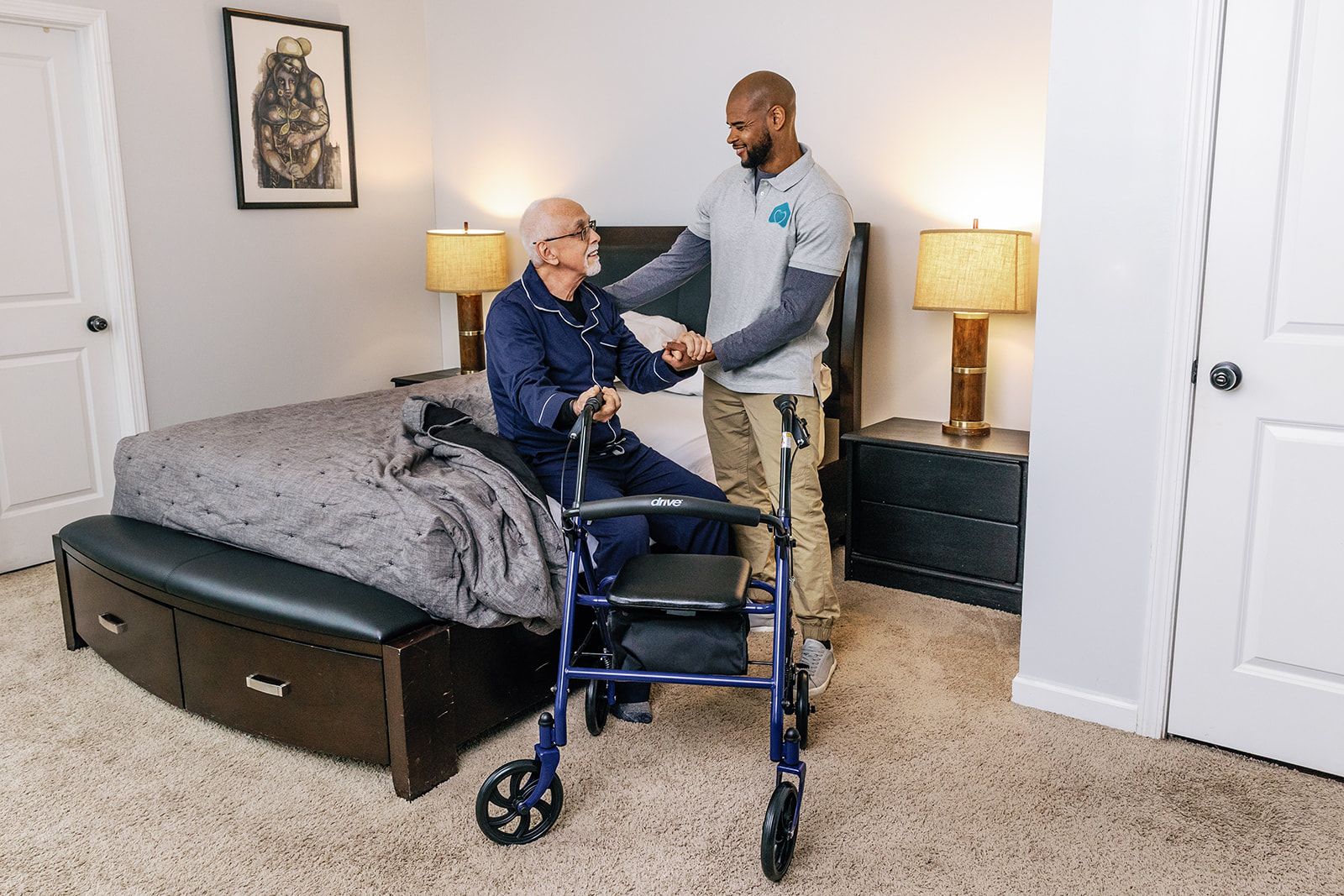What Is Hospice Care? What Families Need to Know About In-Home Support
When a loved one is facing a terminal illness, the conversations change. Suddenly it's not just about treatment—it's about comfort. Dignity. Peace. And togetherness.
That's where hospice care comes in.
If you're trying to figure out whether hospice is the right step—or just trying to understand what it really means—you're not alone. Many families in Atlanta and beyond turn to hospice when they want their loved one to live their final months or weeks with grace, without unnecessary pain or hospital visits. And yes, in many cases, this care can happen right at home.
This guide will help you understand what hospice care is, how it works, and how in-home hospice may be one of the most meaningful decisions you ever make for someone you love.
Table of Contents
What Is Hospice Care?
Hospice care is specialized medical and emotional support for individuals who are in the final stages of a terminal illness. Rather than focusing on curing a disease, hospice shifts the focus to managing symptoms, reducing pain, and improving quality of life.
This care is holistic—it's not just about the patient's body, but also their spirit and their relationships. Hospice teams often include nurses, social workers, chaplains, home health aides, and sometimes volunteers. They work together to provide compassionate, coordinated care that respects the patient's wishes and honors their values.
What Is Hospice Care at Home?
Hospice care at home allows a person to remain in a familiar, comforting environment—like their own home or the home of a family member—while still receiving professional medical and emotional care.
Instead of having to visit a hospital or facility daily, the hospice team comes to you. They coordinate with the patient's doctors, manage medications, provide pain relief, and support family members every step of the way.
Home hospice care can include:
- Regular visits from a hospice nurse
- Assistance with bathing, dressing, and hygiene
- Medication and symptom management
- Access to medical equipment and supplies
- Support from social workers and chaplains
- 24/7 on-call nurse access for urgent needs
The 4 Levels of Hospice Care
Medicare and most insurance plans recognize four levels of hospice care, based on the patient's needs:
| Level | Description |
|---|---|
| Routine Home Care | The most common level. Includes regular nurse visits, home aide support, and symptom management at home. |
| Continuous Home Care | Provided during medical crises, with a nurse or aide present for extended hours to control severe symptoms without hospitalization. |
| General Inpatient Care | Short-term care in a hospital or hospice facility when symptoms can't be managed at home. |
| Respite Care | Short-term care (up to 5 days) provided in a facility to give family caregivers a much-needed break. |
Benefits of In-Home Hospice Care
Studies show that nearly 70% of people would prefer to pass at home rather than in a hospital. In-home hospice makes that possible. Here's why families often choose it:
- Comfort: Your loved one stays in a familiar place, surrounded by their own belongings and people who love them.
- Control: You can create a calm, personalized environment—no hospital alarms, no visiting hours.
- Family Togetherness: Spend meaningful time without the stress of commutes or facility restrictions.
- Support: Get professional help with physical care, emotional strain, and the logistics of end-of-life care.
- Dignity: Hospice emphasizes dignity and comfort, honoring the person—not just treating the illness.
Is Hospice Care Covered by Insurance?
Yes. Medicare, Medicaid, and most private insurance plans cover hospice care services, including in-home hospice. Coverage usually includes nursing visits, medications related to the terminal illness, medical equipment (like hospital beds or oxygen), and support from aides, social workers, and chaplains.
To access hospice benefits, a doctor must certify that the patient has a life expectancy of six months or less if the illness runs its natural course. From there, a hospice provider will work with your family to create a personalized care plan.

How 4 Seasons Home Care Supports Hospice Families
While hospice agencies provide the medical oversight, many families need extra hands and hearts to help with daily life—and that's where we come in.
At 4 Seasons Home Care, our caregivers can step in as a supportive presence, easing the burden of daily tasks and offering comfort alongside your hospice team. We help with:
- Personal care like bathing, dressing, and toileting
- Meal preparation and light housekeeping
- Companionship and emotional support for both patient and family
- Overnight or 24/7 supervision for peace of mind
- Caregiver relief when you need to step away or rest
You don't have to go through this alone. Our caregivers are experienced, kind, and trained to walk with families through some of life's hardest transitions—with compassion and respect.
4 Seasons Is Here For Families In Atlanta
Hospice care isn't about giving up—it's about showing up differently. It's about choosing comfort, choosing presence, and choosing to make the most of the time you have together.
If you're navigating this journey, we're here for you. Let's talk about how 4 Seasons can support your family—so you can focus on what matters most.
Call us today or reach out online to learn more about how we work alongside hospice to serve Atlanta families with grace, compassion, and expert care.
